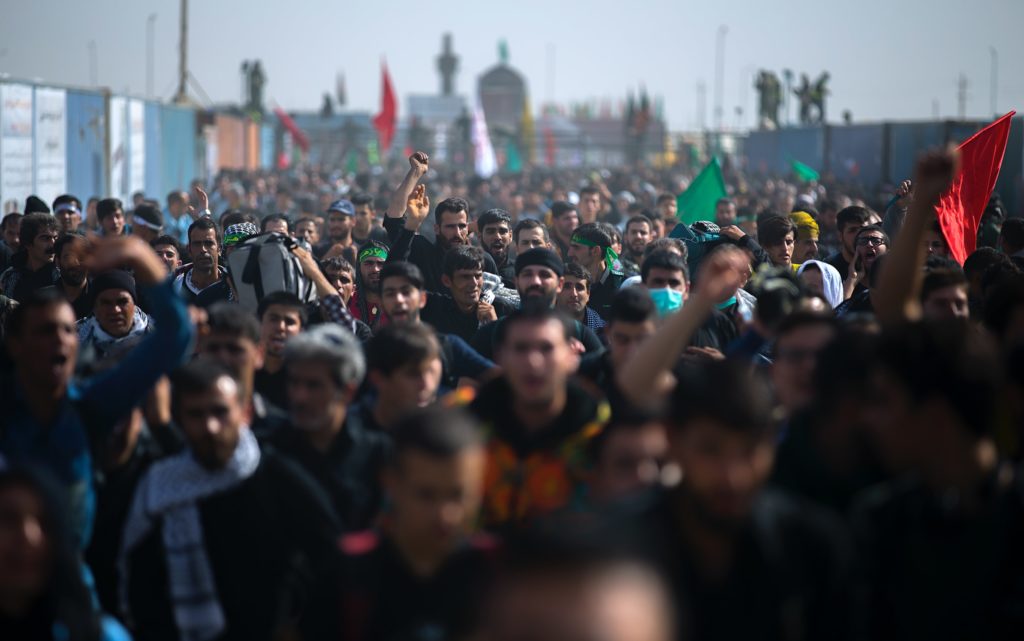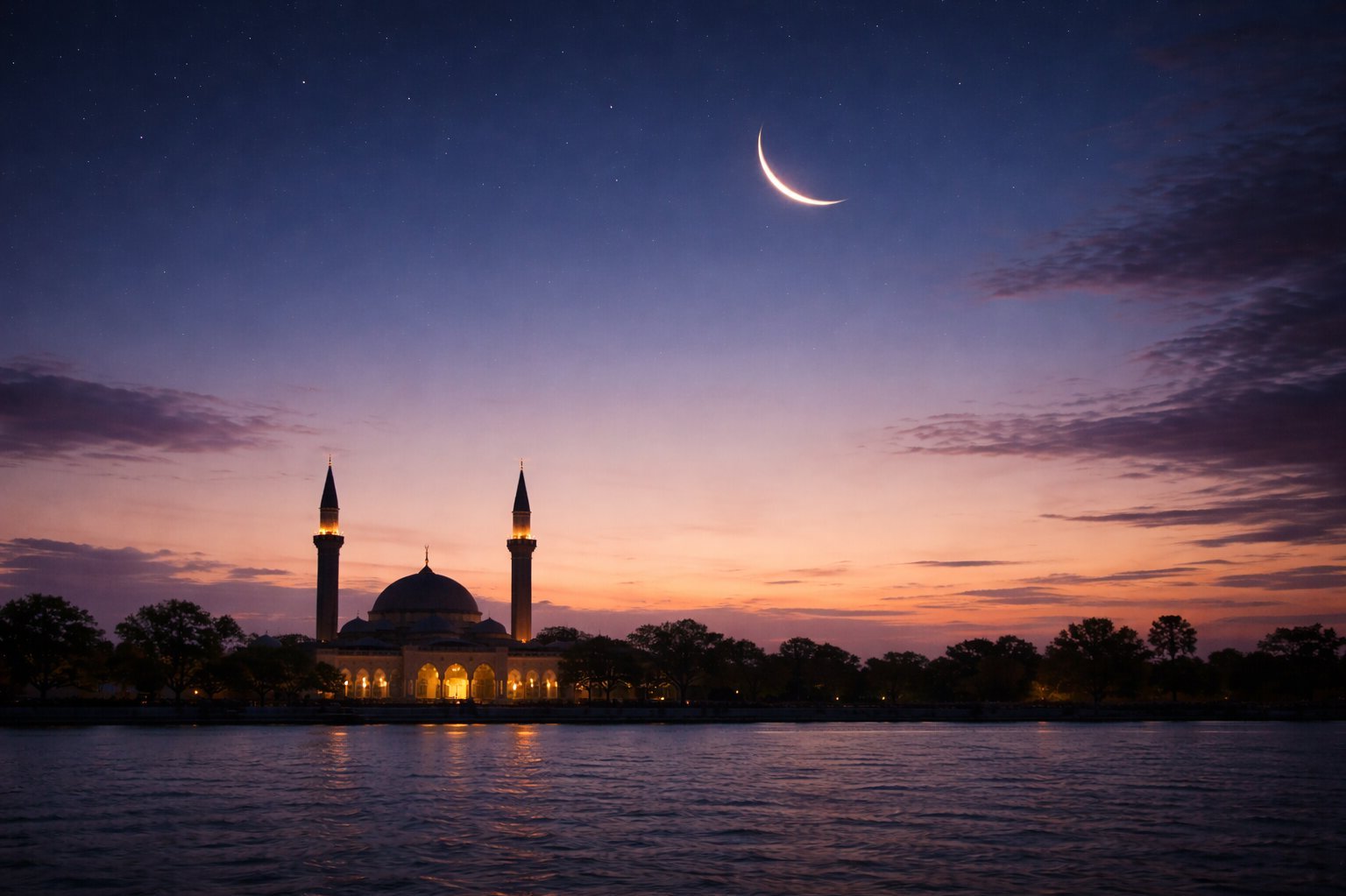Remembering Karbala holds special significance for Muslims. But, is recreating the physical torture Imam Hussainra and his followers went through the true way of commemoration?
HUSAM AHMED
AUGUST 20, 2021
Some tragedies are short-lived and their wounds heal quickly with time while some others carry long-lasting effects with their memories persisting in the hearts of people for centuries. Such is the incident of the martyrdom of Hazrat Imam Hussainra, the grandson of the Holy Prophetsa of Islam, the details of which would move even the hardest of hearts.
For a Muslim however, who possesses immense love for the Holy Prophetsa and the members of his household – such that they do not hold for themselves or their kith and kin – this episode of cruelty is even more heart-wrenching, so much so that the birth of every Islamic year is marked with sorrow and pain owing to the memories of this tragic event.
The tenth day of Muharram, the first month in the Islamic Lunar Calendar, is commemorated as the day of Ashura, for it was this day around fourteen hundred years ago, Hazrat Imam Hussainra and his followers were murdered at the behest of Yazid in the most brutal fashion.
The event was the result of uncompromising determination of two persons – Yazid and Imam Hussainra – the former to establish a tyrannical rule and the latter to prevent it and uphold truth and justice. While Yazid wanted Imam Hussainra to pledge allegiance to him, Imam Hussainra refused to do so knowing well Yazid’s impious nature and his intend to found a despotic regime.
In the events that ensued, Imam Hussainra along with 72 men, of whom were members of the household of the Holy Prophetsa, were martyred. Imam Hussainra was hit 45 times by arrows, 33 times by spears and more than 40 times by sword blows. His body was trampled by the hoofs of the horses and his head was severed and sent to Kufa to Yazid.
Undoubtedly, the whole account of the incident would cause any man having an iota of humanity in him to shudder. Yet for those who are truly aware of the magnanimous nobility of Hazrat Imam Hussainra and are well-acquainted with his consideration for justice and his valour to lay his life for the cause of truth, the pain is beyond words.
However, to have emotions is one thing while to express them with absolutely no regard for consequences is totally another. In the name of their love and adherence to Imam Hussainra, many Muslims have been committing this grave mistake.
On the day of Ashura, different Muslim communities, especially those belonging to the Shia sect of Islam, express sorrow and grief by indulging in activities that are completely alien to Islam. These rituals include lamenting, where they cry out Imam Hussain’s name beating their chests vehemently, and the act of self-flagellation using implements like chains, knives, blades and swords.
The customs, they claim, are practised to show solidarity with Hazrat Hussainra and also as an expression of regret that they were not present at the time when the tragic event took place. These practices have become so deep-rooted in their culture that taking part in them is considered the only acceptable expression of one’s love for Imam Hussainra, refraining from which only implies a lack of affection for him.
However, the biggest irony in such practices is that they violate the very principles they claim to stand for. There is no questioning the fact that Hazrat Imam Hussainra was a staunch follower of the Holy Prophetsa, and it was for upholding Islamic values he attained martyrdom. Hence, to commit any act that overt or covert contradicts Islamic teachings in order to express love for Imam Hussainra would be akin to maligning him in contrast to glorifying him.
How is it possible that a person indulge in practices of lamentation and chest-beating and at the same time claim to be acting out of love for Imam Hussainra while the Holy Prophetsa has exhorted us saying:
He who slaps his cheeks, tears his clothes and follows the ways and traditions of the Days of Ignorance is not one of us.
Similarly, how can one claim to love Imam Hussainra and also ignore completely the teachings he stood for? It is the clear injunction of the Holy Quran that we should abstain from deliberately engaging in acts of self-harming as it is said:
And cast not yourselves into ruin with your own hands, and do good; surely, Allah loves those who do good.
Suffice it to say, to truly express our love for Imam Hussainra requires us to imbibe his qualities and tread the path he paved and apprise the world of his great legacy, not merely through words but also by practising his example.
The Holy Founder of the Ahmadiyya Muslim Community, the Promised Messiahas, who had come as the Just Arbiter corrected all erroneous practices that have taken root in Islam and showed us the right way of expressing love to the Holy Prophetsa and the members of his household.
On one occasion, during the month of Muharram, the Promised Messiahas called his children and related the account of the martyrdom of Hazrat Imam Hussainra. It is reported that he would repeatedly become emotional and wipe his tears away with his fingers. He said with great anguish, “This was the heartless injustice which the despicable Yazid had perpetrated against the grandson of the Holy Prophetsa. But soon after, God seized these callous people with His punishment.”
In another incident, it is narrated that the Promised Messiahas expressed great regret about a member of his Jamaat who used disrespectful words about Hazrat Imam Hussainra. The Promised Messiahas explained to him about the noble character of Imam Hussainra and also advised every member of the Jamaat that they should show affection towards him.
Hence, in light of what the Promised Messiahas has taught us through his admonitions and practices, there should be no doubt concerning the fact that it is only through upholding the principles that Imam Hussainra sacrificed his life for, the true love for his person can be expressed. Otherwise, indulging in vain activities such as self-torture and lamentations would only malign his image in the view of the world.
REFERENCES
[1]













1 Comment
Mudasir Wagay · August 9, 2022 at 1:37 pm
Islam